Regarding this issue, Thanh Nien reporter had a discussion with Dr. Nguyen Duc Nghia, former Vice Director of Ho Chi Minh City National University, about the proposal to reform university admissions in the coming time.

Dr. Nguyen Duc Nghia, former Vice President of Ho Chi Minh City National University
PHOTO: HA ANH
Fulfilling the quota is more important than recruiting qualified candidates.
Dr. Nguyen Duc Nghia, how do you evaluate the university admission journey over the past 10 years?
University admissions have changed a lot along with the changes in the high school final exam in recent years.
The high school graduation exam has undergone many changes over the past 10 years. In the past 5 years, the name of the exam has not changed, but there have been adjustments in the way it is organized. In particular, in 2025, the exam has been adjusted to accommodate the first batch of students taking the graduation exam of the 2018 General Education Program. Changes related to the exam questions, the way the exam is organized, and the graduation exam have an impact on university admissions, because although universities recruit students through many methods, the graduation exam score still plays a key role.
Regarding university admission, after 10 years, schools have increasingly had new admission methods, especially admission based on separate exams. Meanwhile, the admission regulations of the Ministry of Education and Training are constantly changing, especially in the registration and admission sections. For example, in 2015, candidates were allowed to register for 4 admission wishes at the same school and had the right to change their admission wishes at the last minute; in 2016, candidates were allowed to register for 4 admission wishes but at 2 different schools; this year, the change was bigger when candidates were allowed to register for an unlimited number of admission wishes. This regulation has been maintained since then but there have been adjustments around admission techniques.
Universities have to run after meeting their quotas and this goal seems to be set higher than the goal of recruiting quality PhDs.
NEW PROBLEMS ARISE IN 2025 ADMISSIONS
From the reality, how do you evaluate the goals and results achieved in the 2025 enrollment year?
In 2025, it seems that the Ministry of Education and Training wants to apply digital transformation and artificial intelligence (AI) in admissions. The admissions target set by industry leaders is to ensure fairness in admissions and help schools recruit competent PhDs. The overall assessment is that the basic goal has been achieved, in which PhDs are recruited according to the quality criteria of the schools.
In addition to the results achieved, the last admission season had new shortcomings that were not present in previous admissions. In 2025, innovations in admissions aimed at controlling input quality and applying digital transformation, but some shortcomings arose due to lack of preparation, including creating a complete admission data system; early promulgation of regulations and rules related to admissions for schools to implement. In fact, there are regulations issued very late, for example, the entrance threshold for semiconductor design majors, the Ministry of Education and Training only issued a document on July 22 to adjust compared to the previous regulations. The lack of preparation is also due to the lack of specific instructions with generally binding regulations, for example, regulations on score conversion, so each school has a different conversion formula.
The problem also comes from the conversion of foreign language certificates. Foreign language is a compulsory subject in high school and the Resolution of the Politburo from 2024 also aims to make English the second language in schools, but in the high school graduation exam, this subject is still only an optional subject. In addition, although it is not counted as 10 points in the graduation exam, when considering university admission, the certificate is converted differently in each school. From there, there is a situation where students have a foreign language certificate but do not register for this subject in the graduation exam, so there is no data to add priority points in the admission exam...
The preparation for the general admission is not enough, the regulations are announced hastily, the schools are not trained enough, the general admission system does not take into account all the risks leading to shortcomings in the admission process. The school's software is also not updated with new admission policies leading to incorrect admissions. When a school makes an incorrect admission, it leads to system errors, and errors occur in a series of schools with related student data from passing to failing and vice versa.

Successful candidates complete university admission procedures in 2025
PHOTO: DAO NGOC THACH
Comprehensive Examination Will Evaluate Candidates More Comprehensively
So what suggestions do you have so that the admission work in the next period can be carried out in the direction of properly assessing learners' abilities in the spirit of Resolution 71?
Perhaps it should start from the high school graduation exam. Along with pushing the time of organizing the high school graduation exam earlier, the exam needs to be more standardized, with uniformity between subjects and a more appropriate level of assessment. In particular, the way of setting questions for some subjects in the new format needs to be evaluated to be more standardized in the exam bank.
The formula for calculating graduation scores should remain stable, but consider making English a compulsory subject in the high school graduation exam, increasing the number of subjects to more comprehensively evaluate the general education program. Keep the exam and admission stable as announced by the Ministry. If there is a computer-based high school graduation exam, it should be announced early so that candidates can prepare. If there is a change in admission policy, it should be announced at least 1 year in advance.
Regarding admission, digital transformation and AI application in admission need to be prepared carefully, early and have regulations for schools so that the system can operate smoothly. It is not necessary to convert equivalent scores between methods and combinations, the benchmark scores can be on different scales according to the criteria of each assessment method to recruit the best candidates according to different methods.
In particular, the school's admission plan needs to be simple, easy to understand and transparent. Because these regulations and rules are transferred into the software to operate the admission process, if the complexity is high, it is easy for errors to occur. Currently, some universities tend to consider admission based on many criteria, this method will evaluate more comprehensively in the context of the assessment of each method is still different.
The admission combination is "skewed" when it has to meet two goals at the same time.
Dr. Nguyen Duc Nghia also said that in 2025, the first batch of students of the 2018 General Education Program will take the graduation exam and university entrance exam. The 2018 General Education Program for high school (grades 10, 11, 12) has career orientation goals. Meanwhile, in 2025, universities will not limit the number of admission combinations, which is reducing the career orientation goals of high school. Not to mention, it also affects students' subject selection orientation when entering grade 10 and subject selection when taking the high school graduation exam.
It seems that the admission combination is "skewed" when it has to meet two goals at the same time: matching the career orientation of high school students and the core subject orientation of the training industry of universities.
Source: https://thanhnien.vn/doi-moi-tuyen-sinh-dh-nam-2026-de-danh-gia-dung-nang-luc-thi-sinh-185250915233813632.htm



![[Photo] Cutting hills to make way for people to travel on route 14E that suffered landslides](https://vphoto.vietnam.vn/thumb/1200x675/vietnam/resource/IMAGE/2025/11/08/1762599969318_ndo_br_thiet-ke-chua-co-ten-2025-11-08t154639923-png.webp)




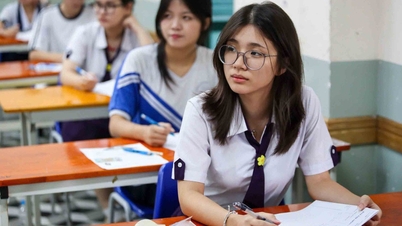


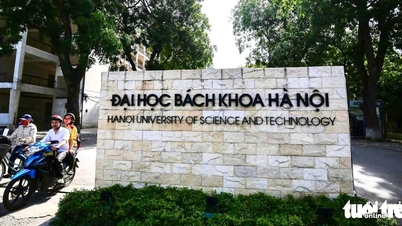
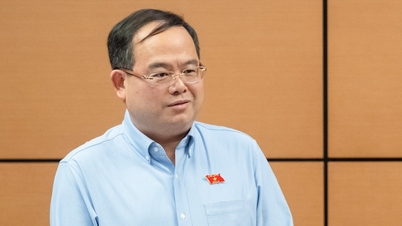

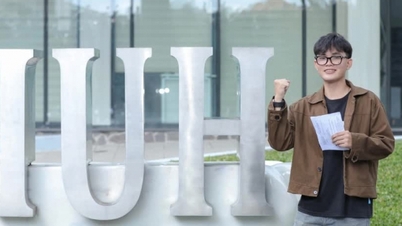



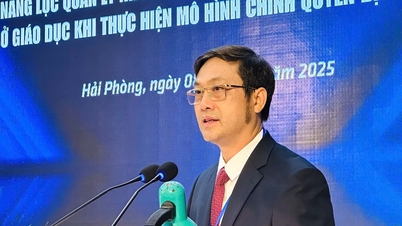










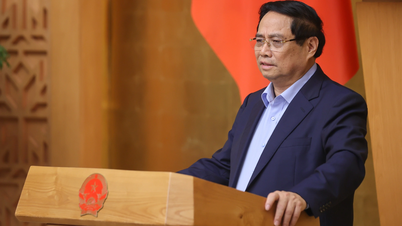


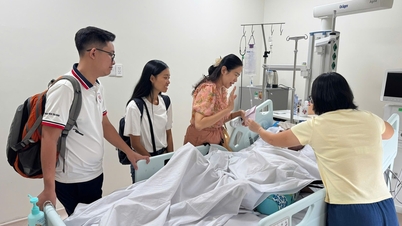


![[Photo] "Ship graveyard" on Xuan Dai Bay](https://vphoto.vietnam.vn/thumb/1200x675/vietnam/resource/IMAGE/2025/11/08/1762577162805_ndo_br_tb5-jpg.webp)






![[Video] Hue Monuments reopen to welcome visitors](https://vphoto.vietnam.vn/thumb/402x226/vietnam/resource/IMAGE/2025/11/05/1762301089171_dung01-05-43-09still013-jpg.webp)






























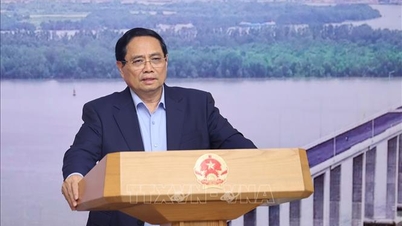


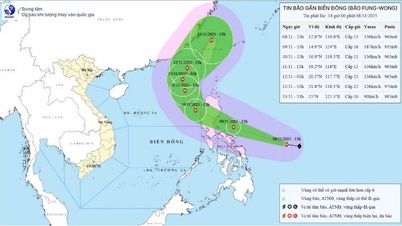








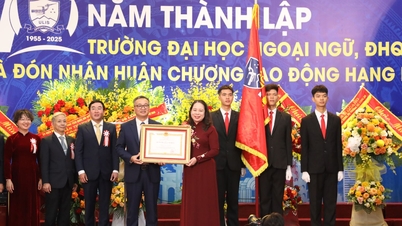







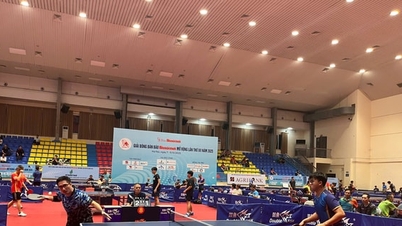



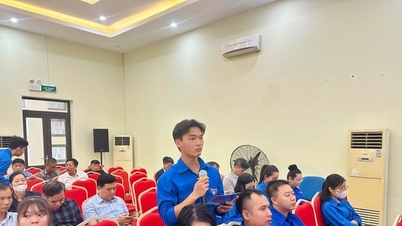















Comment (0)